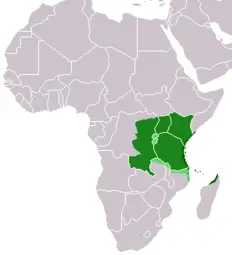Students in New Canaan Country School got an interesting cultural experience recently when their teacher arranged a group Skype call with a classroom in Tanzania. The New Canaan students learned some basic Swahili sentences in order to communicate with their new-found cyber friends in their local tongue. This is just one example of the way Internet technology is bridging geographical gaps in ways the world has never seen before. However, the differences between the two classes was thrown into stark relief when the Tanzanian class was unable to maintain their Internet connection due to an unreliable electricity supply. Nonetheless, it was an experience students on both sides of the world won’t soon forget and represents an encouraging trend towards a more integrated and global community around the world.
In other news relating to the Swahili language, some commentators have credited Tanzania’s ability to propagate their language worldwide and be internationally recognized as a Swahili speaking nation with Tanzania’s relative resistance to the internal unrest that has plagued other African nations for decades. However there are concerns over the potential loss of ‘real Swahili’ amongst youth who are becoming more influenced by foreign culture and language. Some believe it’s important to continue to spread Swahili worldwide through active teaching programs while also ensuring foreign languages are taught within Tanzania in a structured and responsible way.
A recent piece in the newsletter of Johns Hopkins University attacked plans to cut language programs, including Swahili, from the range of courses the school offers. The piece made the point that by limiting the range and number of languages available to learn, the school not only limits the options of students but limits its own reputation. Johns Hopkins has long branded itself as a global university that produces global students – by cutting down on language programs, the editors of the newsletter argue, it becomes harder for the university to truly live up to those claims. The editors have firmly stated they want to see a stop to cuts in language programs and a restoration of the programs being cut, including Swahili.

